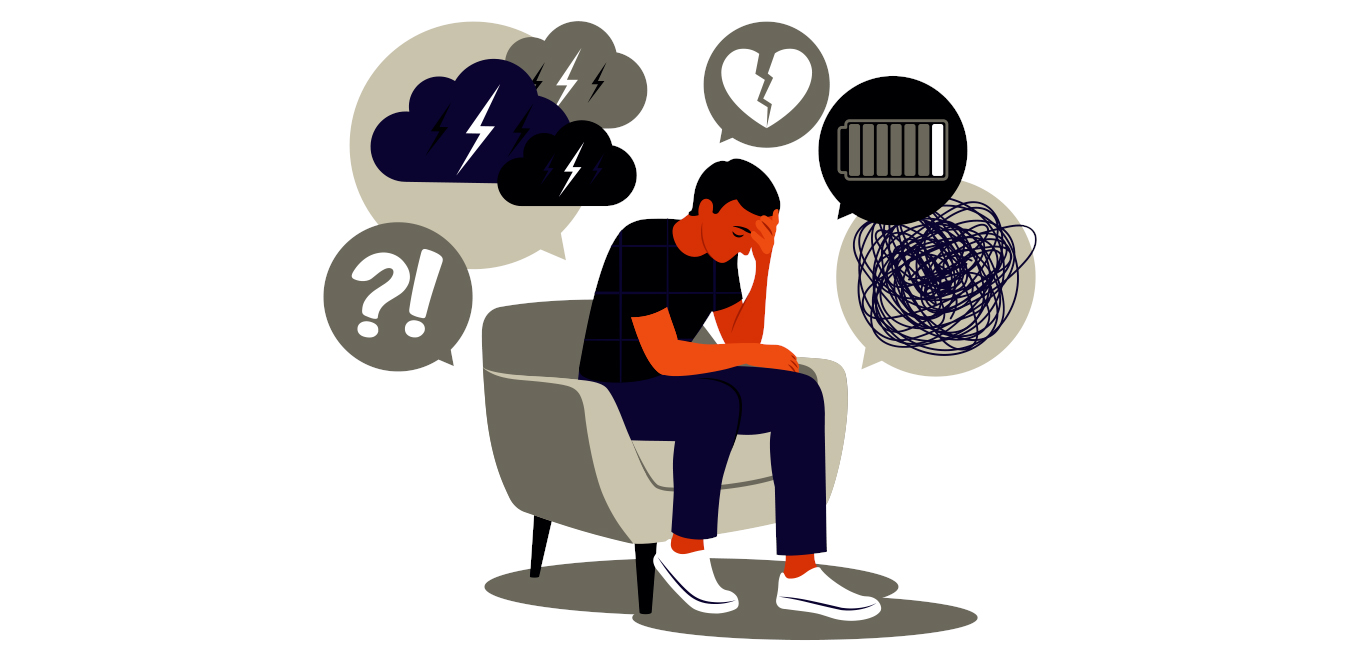
As a newly-wed bride, 33-year-old Asha Narnoli from Kolkata was eager to start a new chapter in her life, when she moved to Ahmedabad. She had big dreams for the future. But reality hit her differently. The daunting task of adjusting to an unfamiliar city, the presence of countless strangers, and the weight of familial expectations all took a toll on Narnoli’s physical and mental well-being. She was reluctant to discuss her problems with her loved ones for fear they would judge her. And so, for a while, she buried her sadness deep within herself.
“Initially, I was reluctant to share my situation, fearing judgment. But when the pain became unbearable, I decided to confide in Anju, a childhood friend of mine. It turned out to be incredibly beneficial,” shares Narnoli.
Thereafter, the transformative power of opening up became evident to Narnoli. She then began sharing her feelings with her husband as well. To her surprise, she discovered he was genuinely understanding and willing to make changes to accommodate her needs.
Narnoli’s story serves as a testament to the profound effect honest and open communication can have on our healing and growth. Diane Dreher, PhD, and positive psychology coach in Santa Clara, California explains, “Talking about our problems with a trusted friend or therapist can make us stop ruminating about our worries. It can help us move toward greater understanding and come up with solutions for our problems with more ease. This way, we will know we are not alone, that someone cares about us, and that makes a big difference to our emotional health.”
British-Swiss writer, Johann Hari, in his thought-provoking book, Lost Connections: Uncovering the Real Causes of Depression—and the Unexpected Solutions explores the complex nature of depression, its causes, and treatments. He argues that one of the essential solutions lies in reconnecting with others and having meaningful conversations. Through personal stories and scientific research, Hari demonstrates the transformative effects of talking openly about our problems and building genuine connections.
The science behind talking it out
In a study by Matthew D Lieberman in 2007, it was discovered that labelling our emotions has a profound influence on our brain’s response. By putting our feelings into words, we effectively calm our brain’s alarm system, the amygdala, which triggers the fight-or-flight response. This shift occurs as the language and meaning centres in the right ventrolateral prefrontal cortex are activated. It promotes mindfulness and reduces reactivity. So, instead of suffering from chronic stress by keeping all the heavy emotions bottled up, we could consider opening up about it. If we are not open to talking to loved ones or even a therapist, then there is always journalling.
Inhibitions
Discussing our problems can be challenging for various reasons. Societal norms often discourage men from expressing their emotions openly, leading them to internalise their feelings. And then, there are certain emotions, such as guilt or shame, which can be so overpowering that it might feel like a daunting task.
According to Aditi Tulshyan, a certified trauma therapist and marriage and family counsellor at XpressIt Mental Health Services in North Delhi, opening up about our problems can be difficult due to several factors. One major obstacle is our own difficulty in effectively expressing our feelings. Tulshyan explains, “There is often a fear of vulnerability that prevents us from sharing our deepest concerns. Furthermore, we may hesitate to confide in someone if we doubt their maturity and ability to empathise with our struggles.”
Another common challenge is the fear of judgement from others. The apprehension of not being accepted, and concerns about how others will treat us further intensify the difficulties associated with sharing our problems.
Who do you share your struggles with?
While baring our hearts to our near and dear ones can ease our emotional burden, it is true that we do need to be a little cautious of whom we choose to open up to. It is indeed crucial to consider whether the person we confide in is truly trustworthy and supportive. If we feel someone might not be mature enough to handle the problems we want to talk about, or we have cause to believe they might not maintain our confidentiality, then we might want to choose someone else, or perhaps a professional. Everyone cannot be everything for us, no matter how close we think we are, and that is okay.
Interestingly, not all forms of vocalising have the same positive effect. A study involving college students, young women, and working adults has shown that constantly dwelling on and discussing negative experiences, a phenomenon known as co-rumination, can actually increase stress levels and prolong the duration of our problems.
So, to engage in more constructive conversations about one’s struggles, Tulshyan suggests choosing one’s confidants wisely, selecting individuals who will genuinely support us without indulging in co-rumination. Sometimes, this might seem like a tall order, as most individuals cannot turn up for us the way we need them to. If we are faced with this, it is a good indicator that seeking a professional therapist might do us good. Tulshyan points out, “A therapist can help you set boundaries and goals for productive discussions. Such a professional can be a valuable resource for emotional well-being.”
Benefits
Tulshyan lists numerous benefits to talking about our problems with others. Here are some key points highlighting the advantages:
Emotional relaxation: Sharing our problems with someone provides a sense of relief. It allows us to release pent-up emotions and experience a greater sense of calm.
Self-compassion: Others are often gentler with us where we are harsh with ourselves. Talking to those we trust helps us develop self-compassion. It teaches us not to judge or blame ourselves excessively.
Stronger connection: Engaging in open conversations about our problems fosters a deeper connection with the person we confide in. The compassion and support they provide create a stronger bond, trust and understanding.
Physical and mental well-being: Talking about our problems has tangible effects on our overall well-being. It has been known to reduce stress levels and improve physical and mental health.
Shift in perspective: When we confide in our trusted loved ones about our problems, they can help us see the matter differently. Often, they are able to help us see solutions to our problems, and if not, see the matter in a more positive light. This shift in perspective contributes to emotional healing and resilience.
Residue reduction: When we find a safe space to express our problems, it minimises the potential residue of negative emotions associated with traumatic events. Connection and conversation help in processing and mitigating the painful remnants of difficult experiences.
So, the next time, in moments of emotional distress, rather than being consumed by negativity or internalising our feelings, we could consider externalising it in some way. Mindfully labelling our emotions, writing about them, sharing with a trusted loved one, and seeking a therapist are all powerful options; the choice is ours.

















